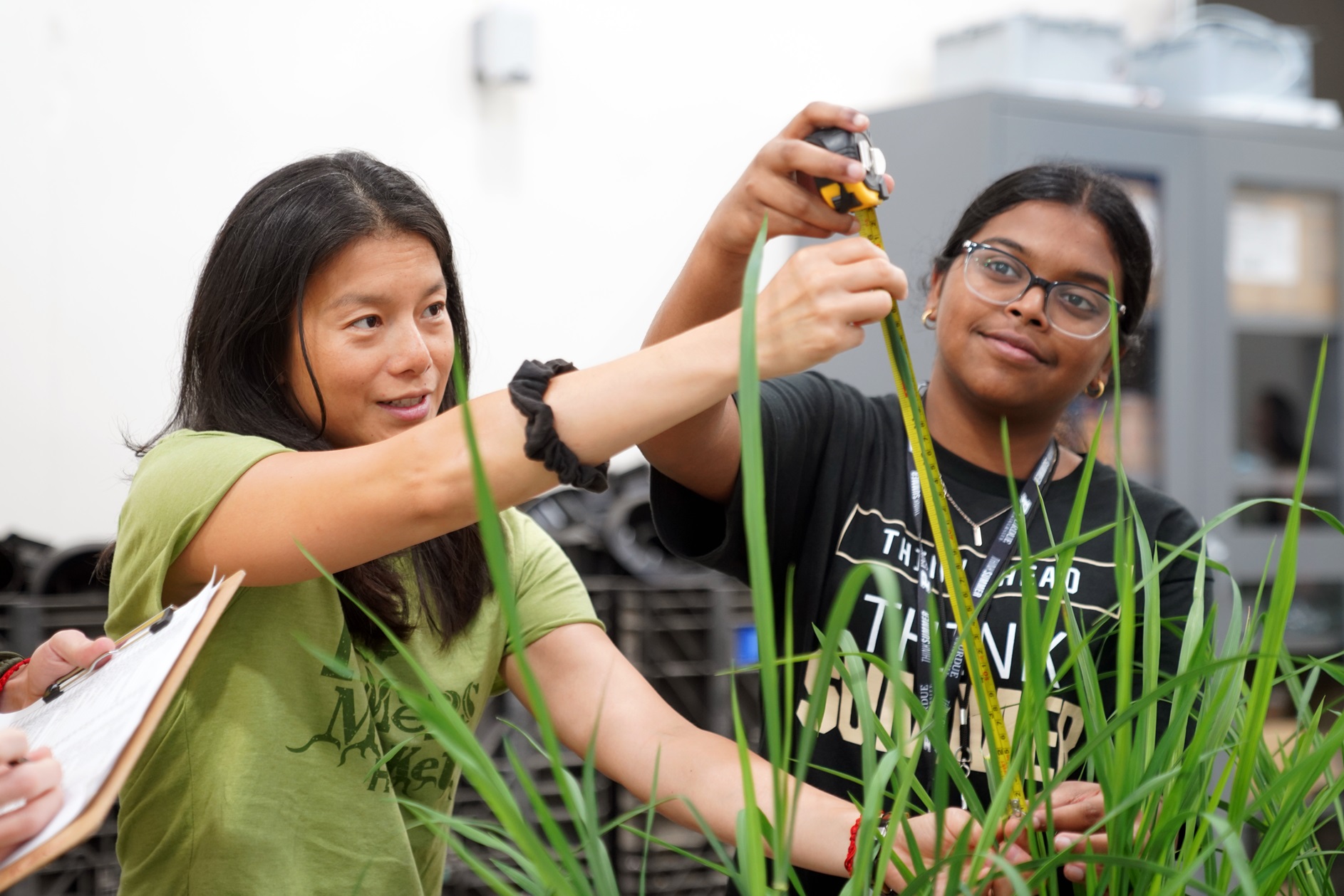Roots of Discovery: Diane Wang’s exploration of plant resilience and international research
Diane Wang, associate professor in the Department of Agronomy, vividly remembers the night she first set foot at the International Rice Research Institute (IRRI). As a senior undergraduate student, she had been fascinated by the complex relationships found in nature, including between plants and their environments. But it wasn’t until she attended a training course and brief internship at IRRI in Los Baños, Philippines that she realized how science could translate to impact for the world’s most under-resourced populations.
Born in China and moving to New York City when she was just 5 years old, Wang developed a deep appreciation for diverse environments and cultures, which later fueled her interest for international research. She felt a sense of belonging while at the IRRI, working among scientists of different nationalities, academic backgrounds and career stages.
Wang’s journey led her to pursue a PhD in plant breeding and genetics at Cornell University and a post-doc at University of Buffalo. After joining Purdue University in 2020, she quickly established herself at the cutting edge of research. Her current focus is on how crop species have evolved to cope with the increasing challenges of climate variability.
"Plants are extraordinary," says Wang. “They've developed an arsenal of strategies to survive and thrive under conditions that are constantly changing. Their strategies are as varied and dynamic as the environments they grow in."

Her work is deeply rooted in understanding these strategies, particularly how environmental factors, such as temperature, precipitation and solar radiation, interact with genetically conditioned plant traits. Wang’s program seeks to uncover the underlying processes that govern plant behavior. This knowledge is crucial for developing models that can predict how crops will perform under new and unpredictable environmental conditions—something that is becoming increasingly important as the world grapples with the effects of climate change.
"With climate change, there is much uncertainty in the forecast," she says. "We work to improve computer simulation models of plant behavior to find better predictive approaches that are scalable across genetic variation."
The agricultural landscape is constantly shifting. Such predictions could be a key to ensuring food security in the future.
Wang’s experience with the IRRI was transformative, setting her on a path to Purdue, where she leads a program that is making significant contributions to the field of plant science and international research. She recently led the three-year National Science Foundation-funded program, Plant Science for Global Food Security, an international research experience for undergraduates at the same IRRI that set the course for her research.
"I’m very grateful to have had the opportunity to provide international experiences for students at that critical early stage of their career,” she says. “It's my way of paying it forward and a reminder of why I started this journey in the first place."
Wang’s lab is currently working on tools that help predict how new crop varieties will perform in novel environmental scenarios, ensuring that agriculture can continue to meet the needs of a growing global population.
In recognition of her achievements and potential, Wang recently received the Jane Silverthorne Early Career Award, presented by the American Society of Plant Biologists.






